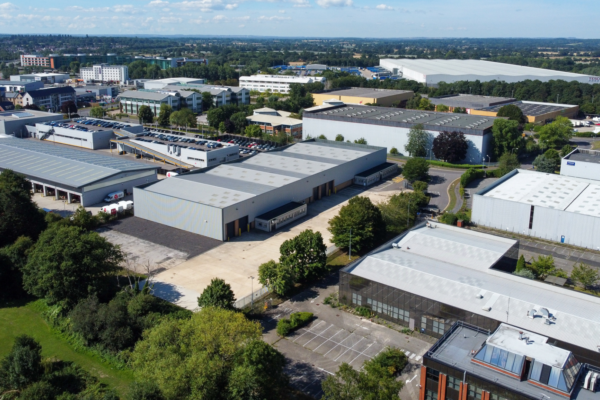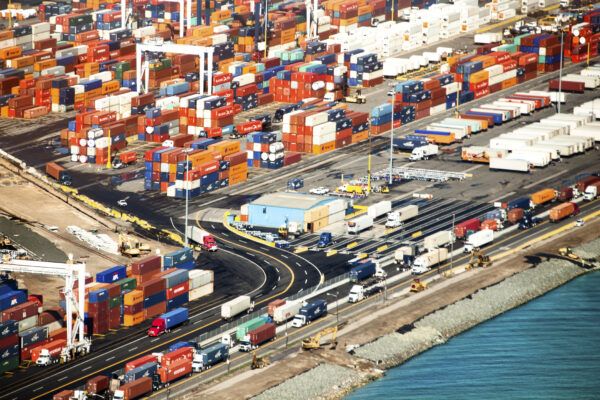The corporate sustainability calendar has been busy recently with Climate Week NYC, dubbed as one of the biggest to date, and Sustainability Europe, both convening global business leaders around action on climate change. Three years on from the formation of the corporate Alliance for Clean Air, more attention is turning to private sector action on air pollution.
During Climate Week, it was clear that more companies are beginning to understand the impact of air pollution across multiple areas, including on their business, consumer health and climate. The growing conversation on air pollution marks a step change: business leaders now see reducing air pollutant emissions as strategically beneficial for informing smarter decision making on climate transition plans.
The business case for reducing air pollution is clear:
- every year, approx. 1.2 billion workdays are lost as a result of poor air quality
- reducing air pollution by 20% could lead to 33% more productivity from workers
- accounting for air quality improvements in climate policies could make them up to 50% more effective.
In addition, changing regulation will mean more companies will need to report on their air emissions. From 2025, companies must start complying with mandatory reporting of air pollutant emissions through the Corporate Sustainability Reporting Directive (CSRD) in Europe and the Business Responsibility and Sustainability Reporting (BRSR) in India. China and Singapore are due to follow suit following talks about mandatory reporting requirements for listed companies, which could also include air pollution.
So how are we moving conversation into action? Here are three key takeaways:
Meeting companies where they are
During Climate Week and Sustainability Europe, several businesses shared their approaches to tracking air pollutant emissions. Some are initially focusing on sources within their sphere of control, e.g. tracking direct emissions from their own operations and/or indirect emissions from the purchase and use of energy. Others, through using our guide, look across their whole value chain, including emissions that occur in the upstream and downstream activities of an organisation, such as buying, using, and disposing of products from suppliers. Some companies are already publicly disclosing their data, a pioneering step for private sector transparency on air quality.
Businesses are exploring how reducing air pollutant emissions can bolster current climate mitigation measures. Companies are opting to report in ways that work for their current strategies and plans. The Alliance for Clean Air meets companies where they currently are and supports them through a community of practice we have created with other members.
One company’s progress can catalyse a step change
Progress has been made by our alliance members, with 10 multinational companies publicly disclosing their air pollutant emissions across their value chains. At Climate Week, our members highlighted the benefits of integrating air pollution into their mitigation measures. Inter IKEA Group is projecting a 50% reduction in measured pollutants by 2030, specifically a 51% reduction in black carbon, 58% for particulate matter (PM2.5) and 69% for sulphur oxides (SOx). The company is planning to achieve substantial reductions in specific areas, including stationary fuel combustion and transport.
Through effective reporting, companies can make more informed and holistic choices, subsequently ensuring sufficient guardrails are in place to build on the gains made on reducing air pollution. Consumer healthcare company Haleon outlined their pivot away from using biofuel as a result of integrating air pollution into their transition plans.
Collaborating with industry associations and forums
Over the last year, we have been collaborating with members of the alliance to profile our work on clean air with industry associations and forums. This enables more companies to start to consider how they can integrate air pollution reporting into their current frameworks.
One example is our partnership with Exponential Roadmap Initiative (ERI), whose mission is to halve emissions before 2030 through exponential climate action and solutions. In collaboration with Inter IKEA Group, we are working with ERI to integrate air pollution reporting into their 1.5˚C Business Playbook by the end of the year. This will help more companies start reporting or bolster their current air quality tracking.
The alliance is building evidence showcasing the benefits of integrating air pollution into climate mitigation measures. Now we are beginning to see an air quality ambition loop being created between multiple stakeholders, including businesses and policy makers. A combination of effective regulation, sufficient tools, and more businesses publicly disclosing their emissions, will help strike the right balance to compel more companies to take action on clean air.
Watch the recording of our event with Exponential Roadmap and Inter IKEA Group at Climate Week 2024, which explored how businesses can lead the way in creating a cleaner, healthier future:


